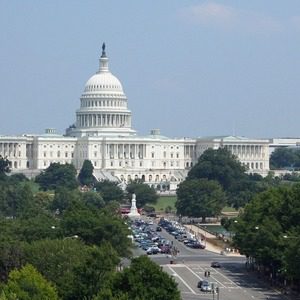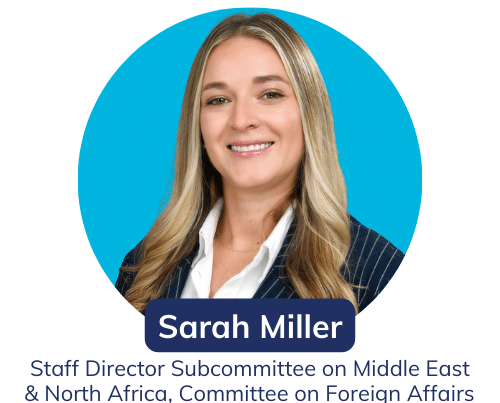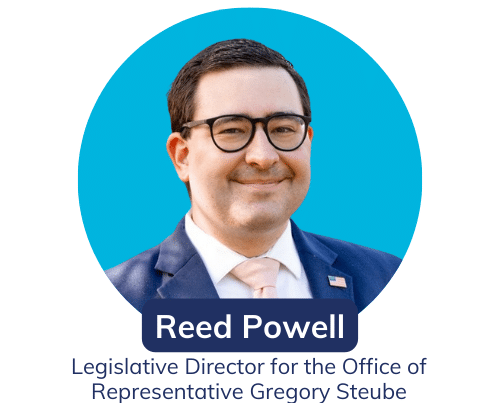What is the Select Committee on the Modernization of Congress?

The relatively new congressional committee is tasked with providing recommendations to modernize and maximize efficiency in the congressional process. On Jan. 4, 2019 the House voted (418-12) to establish the 12-person committee. With an equal number of Democratic and Republican members, the select committee is believed to be one of the truly bipartisan committee in Congress. Originally only provided short-term funding, the select committee was set to expire in February 2020, but the House voted to extend funding through the end of the 116th Congress. In January, the House reauthorized the Select Committee for the duration of the 117th Congress (through January 2023).
In the 116th Congress, the committee was chaired by Rep. Derek Kilmer (D-WA, 16) and the Vice Chair was Rep. Tom Graves. In the 117th Congress, Kilmer returned as chair of the committee and Vice Chairmanship was awarded to Rep. William Timmons (R-SC, 4). Membership remains capped at 12 with six democratic members and six republican members. A full member list can be found here.
What has the committee accomplished?
In the 116th Congress, the Select Committee on the Modernization of Congress put forth 97 recommendations aimed at improving the congressional process. These recommendations were all approved unanimously by the 12 members of the committee and ranged in subject from greater civility amongst members to improvements that could be made with scheduling and technology systems on the Hill.
Some of their most notable recommendations in the 116th Congress surrounded the congressional budget process.
Those recommendations were as follows:
Require an annual Fiscal State of the Nation.
Similar to how businesses make presentations to their board and shareholders, this would establish a yearly explanation of congressional finances – where and how money appropriated to congress is being spent.
Require a biennial budget resolution.
In addition to the annual appropriations process, a budget resolution would be decided on every other year to allow for greater time to plan and to promote more extensive oversight of the spending process
Implement a deadline for Congress to complete action on a biennial budget.
In previous Congresses, the budget deadline was set for April 15th. This resolution would move the deadline back to May 1st to allow a bit more time for legislators to produce a thorough budget plan.
Enhance the budget submission process from the executive branch.
Budget proposals made by the executive branch typically are incorporated with presidential policy proposals, this would require an additional submission separate from policy that detailed prior and current year fiscal data as well as credit re-estimates for the current year, allowing for a greater time frame for Congress to develop budget resolutions and baselines.
Evaluate the effects of the biennial budget process to expediting congressional work.
This recommendation would prompt the Appropriations and Budget Committees to review procedure and schedules regularly to ensure prompt considerations of legislation put forth
Strengthen budget enforcement through the reconciliation process.
With the aim of limiting the use of budget reconciliation, in which bills that are not primarily budget bills are allowed to avoid a filibuster with only a simple majority rule as is typical with budget bills, this would assert that budget reconciliation was only applicable to bills that would reduce the deficit and would require an explanation of assumed changes to spending.
Allow more information to be included in the budget resolution.
This would require that combined outlays and revenues for tax expenditures be included in budget resolutions to give a clearer view of federal spending.
More information about the budget recommendations made during the 116th Congress can be found here.
What was actually implemented?
On Jan. 4, the House of Representatives adopted the official rules of the 117th Congress in House Resolution 8. Within this rules package, the Select Committee was reauthorized and several of its recommendations from the 116th Congress were officially implemented.
Rules are as follows:
- Making permanent the Office of Diversity and Inclusion
- Implementing electronic filing of committee reports and allowing electronic signatures
- Broadening availability and utility of legislative documents in machine-readable formats
- Advancing the use of comparative prints; and,
- Updating the House Commission on Congressional Mailing Standards (now known as the House Communications Standards Commission).
On December 10, 2019, the full committee introduced House Resolution 756, a resolution entitled “Moving our Democracy and Congressional Operations Towards Modernization (MODCOM)”. This resolution incorporated 29 of the 97 recommendations passed by the Select Committee aimed at improving transparency, accessibility, and communication within the House of Representatives and was passed by an overwhelming majority on March 10, 2020.
What are they doing now?
In April, the Select Committee held its annual Member Day with 25 members of Congress virtually sharing their ideas to improve the congressional process. The goal of the meeting was to work across the aisle and openly share ideas.
Topics included:
- Rules to promote a more modern and efficient legislative body.
- Procedures, including adjusting the schedule and calendar to ensure that Members have more time to hear from constituents and to help deliver solutions.
- Continuity of Congress to ensure the legislative branch can continue to function in challenging circumstances.
- Staff recruitment, diversity, retention, compensation and benefits to find out how best to make the body more representative of the country as a whole, and to ensure it has the capacity to meet the needs of the American people.
- Increasing civility.
- Innovation and updated cybersecurity to examine whether offices and staff are using the best, most modern, and most secure technologies.
During the Member Day Hearing, members of House Leadership that do not currently serve on the committee were able to voice opinions about the progress made by the Select Committee so far, and what they feel should be the focus moving forward.
Minority Whip Steve Scalise (R-LA, 1) spoke about the reality of a post-COVID-19 Congress, detailing the need to roll back extended voting times originally implemented to aid in the social distancing process and emphasizing the need for committees to resume in person meetings to help foster bipartisan interaction amongst committee members.
Majority Leader Steny Hoyer (D-MD, 5) applauded the reinstatement of Congressionally Directed Spending and the great strides made by the Select Committee to modernize the technology used on the Hill, specifically within the Congressional Digital Service Program. He also spoke about what he believed should be an area of focus during the 117th Congress: staffing. Hoyer emphasized the need to improve the recruitment and retention process for qualified staff through modernized approaches to compensation, benefit packages, childcare, college savings plans, and loan forgiveness. This sentiment was mirrored in the testimony given by Democratic Caucus Chairman Hakeem Jeffries (D-NY, 8). See Hoyer’s full testimony here.
Today, the Select Committee is holding a hearing, entitled “Recruiting, Empowering, and Retaining a Diverse Congressional Staff,” to discuss recommendations surrounding the staffing process on the Hill. This will cover issues mentioned by congressional leadership during Member Day such as recruitment, retention, diversity and inclusions, and the accessibility of internships for people of all financial backgrounds.
Throughout the remainder of the 117th Congress the committee will continue to draft recommendations for congressional procedure and hold hearings to discuss the merit of those recommendations with the ultimate goal of having them implemented as rules within the new congress. In addition to putting forth new recommendations to help improve the congressional process, the Select Committee will follow up on recommendations made during the 116th Congress that were not officially implemented in the new congress – those recommendations not included can be found in the legislative action section of the 116th Congress Final Report.






